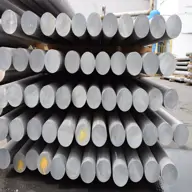Engineering Materials - Material Manufacturing Processes - Two Modules

Language
973 Views
2 Enrollments
Share
Coming in October, 2024
-
-
This course format is where trainer will explain you the subject via online live session. Date and time are not decided yet but it will be planned within next 2 weeks after you enroll & pay for this course. Get in touch with our team if any clarification is required.
₹ 699
online

₹ 699
Why do you enroll
Key topics covered
Course details
Course tags
Why do you enroll
Completing the two modules on Material Manufacturing Processes can significantly enhance your career prospects in the field of materials engineering. With in-depth knowledge of various manufacturing processes, you can transition into roles like Process Engineer, Materials Scientist, or Manufacturing Engineer, developing and optimizing materials production. Further advancements can lead to senior positions like Senior Research Engineer, Technical Director, or Plant Manager, overseeing the development and implementation of innovative material solutions. Additionally, this expertise can also open doors to careers in related fields like supply chain management, quality assurance, or research and development, offering a wide range of opportunities for professional growth and advancement in industries like aerospace, automotive, or energy.
Show more
Key topics covered
Industrial Manufacturing Processes Brief
Rolling,
Forging,
Hot Forming,
Cold Forming,
Casting,
Extrusion.
Show more
Course Details
The major classifications of engineering materials include metals, polymers, ceramics, and composites. The important characteristics of the materials within each of these classes are discussed in this course, and use of material properties are also explained. Engineering design materials to meet required properties to design an equipment & materials science plays an important role to understand the fundamental factors that influence the structure and properties of a material. such as thermodynamics, structural evolution, etc. This course is designed to provide in depth knowledge on various material manufacturing process.
You will learn various parameters after completing this course -
1. Different types of material manufacturing processes
2. importance and use of each process
3. Theoretical background behind each requirements which helps an engineer to understand the importance each making process.
4. An insight into the newly introduced methods, it's criteria and guidelines.
5. Bridging the gap between theoretical knowledge and practical application requirements.
6. University students who want to take up career in engineering or manufacturing department and wants to learn about the most widely used best practices and standard.
7. Experienced engineers who want to grow their career in engineering or production by understand the background of different types requirements

Show more
Course tags
Industry domains :
Engineering Disciplines :
FAQs on Engineering Materials - Material Manufacturing Processes - Two Modules
Having specific question ? Ask now
Trainer’s Feedback
5 course rating
1 ratings
mg
mani giri
19 days ago
Very useful for me I'm inthe welding inspection filed so very useful full notes and tips I get through this and learning also lot
Certificate of Mastery

Receive well recognised certificate that you can showcase on
Featured courses
Hazard Identification and Risk Assessmen...

How to prevent corrosion in the oil and ...

Application and use of "Green Hydrogen"

Career in EPC projects for Freshers

Career in EPC Cost Estimation

Learn MATLAB Programming

More Technical Courses From Chaitanya Purohit
Mastering Supply Chain Management: Optim...

Mastering Six Sigma: Driving Quality and...

Kaizen: The Art of Continuous Improvemen...

Welding Technology - Basics

Engineering Materials - Material Manufac...

Engineering Materials - Iron & Steel mak...

Engineering Materials - Material Classif...

Why NDT - Importance of Non Destructive ...

Similar Content Learn:
Introduction to Materials Science

PV Elite Static Equipment Design
E3D Admin and SP3D Admin
Comprehensive Mechanical, Electrical, an...
Electrical Safety

Instrumentation and control in Real worl...

Process Design Engineering Full Course

Complete Course on Pressure Vessel Engin...

Similar Content Mentor:
All About Interviews

Presentation Skills _ Part 2

Similar Content Seminar:
7th International Oil & Gas Chemistry, C...

Similar Content Blogs:
The Importance of Steel in Construction

Technical Basis for Impact Test Exemptio...

A brief mathematical overview of the for...

Aerodynamic physics of the Delta Wing

Seal of Hydraulic cylinder.

Similar Content Community:
Firefighting Design By Naga

Engineer's Corner

Cathodic protection

Corrosion

Cae engineers

Similar Profile:

Debojyoti sen
MD & CEO, SAURYAJYOTI REN...

Sabari Kuppuraj
Engineer

Atul Kabre
Independent Consultant

Dr Bhawani Singh Rathore
Renewable Energy Coach an...

Anup Kumar Dey
Owner of https://whatispi...

Jyoti Swarup
--

Praveen Tiwari
--



































